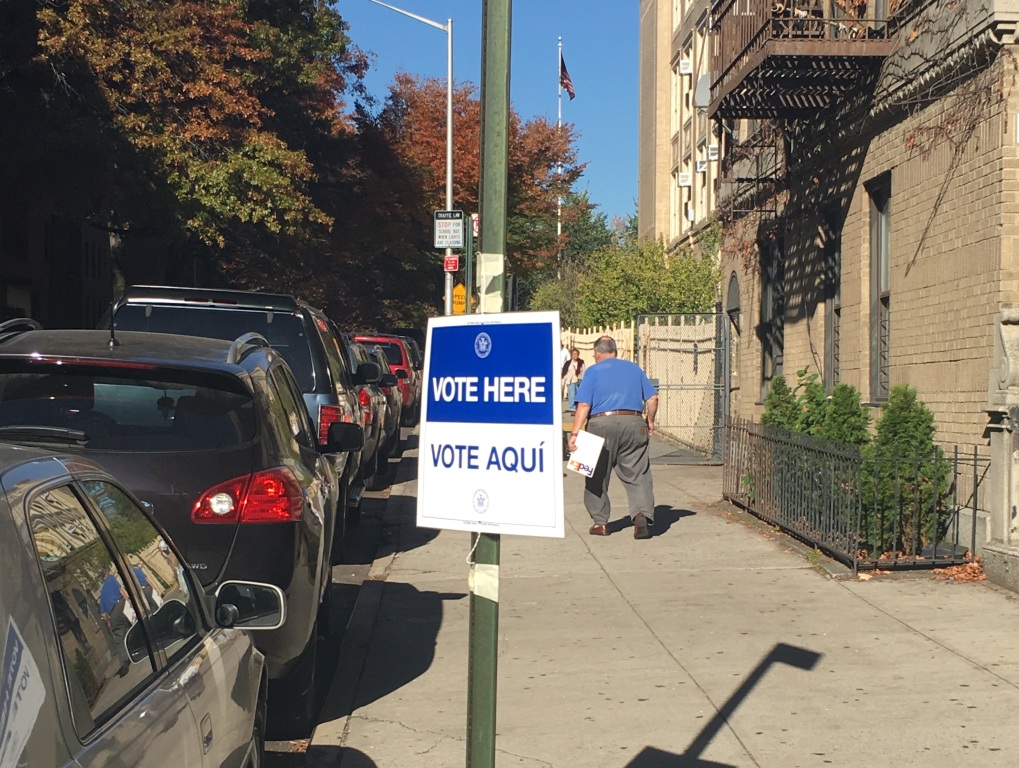
File Photo
On Election Night, the Norwood News stood glued to the results of voter returns in the race for Bronx District Attorney, a contest rife with political intrigue wrapped in rarity. The news of an actual race, the first in 27 years following the long tenure of borough District Attorney Robert Johnson, could have spurred a big presence in a contest that’s lain dormant for nearly three decades.
One would think it would at the very least signal a spike in voter turnout in an otherwise lackluster political season. We expected that. Unfortunately, it didn’t happen.
When the returns trickled in, we noticed there was barely a voice going to the polls. The bulk of registered Bronx voters had once again stood home, relinquishing a privilege that remains unseen in virtually most of the modern world. In the race for DA, the Board of Elections tallied 32,901 votes, despite polls staying open for 15 hours. Casting a vote seemed like a solitary event, with nary a voter in sight.
Doing the math further, and taking preliminary results from the DA race, we see that of the 96.67 percent of precincts finalizing their votes, 32,901 votes were cast. Of that number, 85.58 percent went to Darcel Clark, a Democrat, while Robert Siano, a Republican, received 14.10 percent with write-in votes making up .32 percent of the vote. Of those figures, we’ve tallied 4.5 percent of the 718,146 registered voters went to the polls. Of the 1,016,912 Bronxites of the age of 18 who are eligible, a group termed the Voting Age Population, a whopping 3.2 percent of that number went out to vote. Not good.
It’s been a matter of record that casting a ballot has been in sharp decline in New York State, following a trend in the U.S. powered by declining confidence in the money-driven political process and apathy towards civic responsibility. It’s no longer viewed as duty-bound, which is unfortunate.
It’s been said by political observers that legislators often pay attention to communities that vote, interpreted as a symbol of a conscious voting bloc. After all, politicians are beholden to voters. The more voters such as you pay attention, the more politicians will pay attention, which can lead to a stream of improvements. That point is ever tangible during election season, when prospective and incumbent lawmakers pencil campaign stops in your neighborhood.
This would be significantly advantageous in poverty-stricken neighborhoods, where low voter turnout has prevented any shred of neighborhood improvement. Factors such as limited education, complicated voting procedures, language barriers, and even the transient state of some neighborhoods, contributed to scant turnout.
But could lack of voting be interpreted as a referendum on a voter’s faith in politics? Maybe. Perhaps yearly headlines of elite politicians standing trial for abuse of power compel voters to stay home on Election Day.
The silent demonstration, however, only makes the incumbents stronger. It’s ironic, yet it happens. Low voter turnout can maintain the status quo, and nary a challenge by anyone. By not voting, you’ve effectively shut out a right that’s been earned and protected since the country seized its independence.
It’s quiet out there, save for the streets. There has been protest after protest on a given cause, yet no one’s making noise at the polls. Reverse it in the future.




